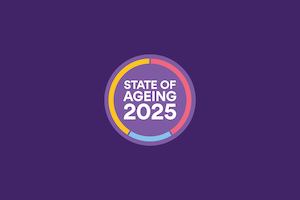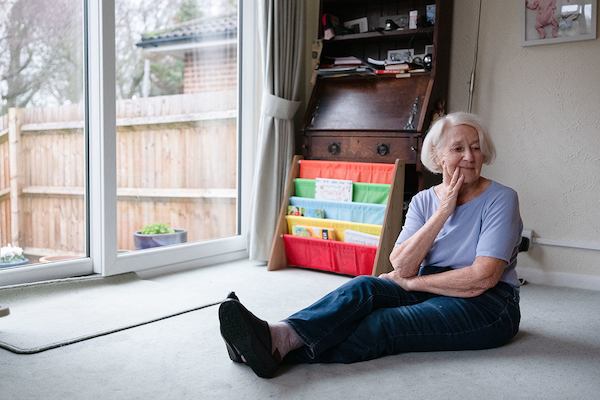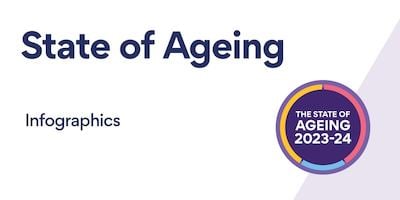Ageing Better Responds to the Government’s Autumn Budget

Chancellor of the Exchequer, Rachel Reeves has set out details of her second Budget since becoming chancellor.
Our Chief Executive, Dr Carole Easton OBE, picks out the policies likely to have the biggest impact on older people and the work we do here at Ageing Better.
The Chancellor has announced tax increases totalling £26 billion in the face of forecasts of weaker economic growth, faster inflation and higher unemployment.
The budget announcement follows weeks of frenzied speculation as to what the Chancellor might announce with up to 13 potential tax policies mooted in the weeks before today’s official unveiling in Parliament.
The policies confirmed today during the Chancellor’s Speech in the Commons and official Budget papers include:
- A £150 cut to the average household energy bill from April next year as the government removes a large proportion of energy efficiency subsidies off electricity bills and scraps the energy company obligation (ECO) scheme.
- The government will provide an additional £1.5 billion capital investment to tackle fuel poverty through its warm homes plan.
- The freeze on the thresholds for when people start paying different levels of income tax has been extended and will result in 1.7 million people paying more tax. But the government has said that pensioners whose sole income is the basic or new State Pension will not have to pay the tax due when the state pension rises above the £12,570 threshold for paying 20% income tax.
- Basic and new state pension payments will go up by 4.8% from April, more than the current rate of inflation, under the triple lock.
- More than £800 million in funding over the next three years announced as part of the government’s Youth Guarantee which gives every young person a place in college, an apprenticeship or personalised job support.
- Training for apprentices is to be free for under 25-year-olds at small and medium-sized companies as part of the programme.
- Salary-sacrificed pension contributions above an annual £2,000 threshold will no longer be exempt from national insurance from April 2029.
Responding to the announcements, Dr Easton said:
On Cutting Energy Bills
"As the UK pays some of the highest electricity charges in the world, moves in this budget to cut average energy bills by £150 from next April are welcome. Too many older people are forced to heat their homes based on what their energy meter is telling them, not what their body is telling them. Cold homes kill. Either quickly, in the case of the 4,000 people who die in cold homes every year, or more gradually through the range of respiratory illnesses that develop living year after year in cold, damp and mouldy homes.
On the Warm Homes Plan
“But ultimately we want everyone to live in good quality, energy efficient homes which reduce energy usage and therefore energy costs. This is good for household budgets and good for the environment. So while we welcome further funding to tackle fuel poverty through the Warm Homes Plan, it is disappointing that the government has had to reduce the budget for energy efficiency measures to balance the books.
“Two of the Chancellor’s three budget priorities were cutting NHS waiting lists and cutting the cost-of-living. Tackling the nation’s appallingly energy inefficient housing stock could go a substantially long way to meeting both those aims.
“We eagerly await the details of the Warm Homes Plan. To ensure it is delivered effectively, the government should consider creating a national network of local one-stop Good Home Hubs that people can rely upon to deliver reliable and effective home improvement advice and services.
On Salary Sacrifice
“The decision to cap salary sacrifice incentives to just £2,000 is a short-sighted move that values topping up Treasury shortfalls in the short-term over people’s own long-term prosperity. We know that people already don’t, or can’t, save enough for their retirement. More than 14 million are undersaving for their retirement. The government should be doing everything in its power to encourage people to put themselves in the best position possible for the future, not restricting people’s ability to save and penalizing companies that encourage them to do so.
“The government should be using all levers at its disposal to encourage planning for retirement at a time when the transition from work into retirement is shifting and changing like never before. We need a long-term strategy for our ageing population, as well as a comprehensive review of the government’s approach to people in their 60s, so that there is a coherent, long-term vision to ensuring as many people as possible have a good later life.
On the Youth Guarantee
“It is welcome that the government is committing more than £800 million towards its Youth Guarantee over the next three years and removing costs for the training of young apprenticeships in SMEs. This is an important issue that needs to be tackled. But the number of so-called NEETS is almost exactly matched by the number of people 50-64 who are out of work and would like to work and they will rightly be asking where is their support? The government will never achieve its employment rate and economic growth targets if it does not fix the current employment inequality experienced by 50+workers.
“One of the critical differences between the UK and countries that already have an 80% employment rate, is that they have a far higher proportion of 50+ people in employment. The government should allocate a proportion of the enormous savings they make from pension age increases to fund tailored employment support programmes for people in their 50s and 60s whose financial futures have been made more precarious by the rises in state pension age.
On Income Tax Thresholds
“The government’s decision to continue to freeze the income tax thresholds means that, even with mitigations for those solely reliant on basic or new State Pension, there is the potential that pensioners with low incomes will be required to begin paying tax directly to HMRC. Not only does this chip into meagre household budgets that are already being stretched to breaking point, but it will also create an additional administrative burden for millions of people.
"The move is also likely to act as a deterrent to those one in eight people over state pension age who are still in employment to work additional hours if they will be liable to 40% tax rates and so is likely to reduce the labour supply of older workers.
On Budget Uncertainty
“This may well have been the most speculated upon budget of all-time and to the ordinary voter this just creates doubt, uncertainty and worry. Older people have told us that the drawn out and fevered speculation ahead of the budget had only served to heighten existing financial concerns.
“Beyond the leaks, the briefings and the projections, are real people leading real lives. Politicians would do well to remember that before becoming too wrapped up in the political theatre of the budget.”













